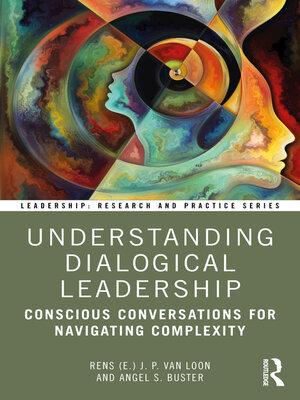Understanding Dialogical Leadership
ebook ∣ Conscious Conversations for Navigating Complexity · Leadership: Research and Practice
By Rens (E.) J. P. van Loon

Sign up to save your library
With an OverDrive account, you can save your favorite libraries for at-a-glance information about availability. Find out more about OverDrive accounts.
Find this title in Libby, the library reading app by OverDrive.



Search for a digital library with this title
Title found at these libraries:
| Library Name | Distance |
|---|---|
| Loading... |
Understanding Dialogical Leadership emphasizes the power of dialogue, self-reflection, and shared decision-making in navigating the complexities of collaborative leadership, especially in the face of evolving challenges in modern life.
The book underscores the importance of being conscious and open to diverse perspectives. The four pillars of dialogical leadership, which form the foundation of its philosophy, focus on flexible application of internal and external dialogues, self-awareness in leadership roles, proactive interchange of influence styles, and creating conditions for meaningful dialogues. A dialogue approach can provide answers to critical questions and wicked issues in the contemporary world, such as the balance between intellect and wisdom in the age of advanced technologies. The book positions dialogue as a dynamic force that brings people together, fostering an environment where valuable insights can emerge. The authors intertwine the ideas of Yuval Harari, David Bohm, Kenneth Gergen, Hubert Hermans, and other leadership authorities, highlighting the importance of relational reflection, with the practice of self-observation, meta-consciousness, and meditation. The objective is to create a collaborative and empowering environment that fosters innovation, trust, and the well-being of others.
Transcending traditional leadership models by acknowledging the need for adaptability, self-awareness, and open communication, and including a chapter on dialogical leadership and artificial intelligence, this book encourages leaders to engage in conversations that bridge diverse perspectives and foster a deeper understanding of the self in a relational world and the complex challenges faced by humanity. It will appeal to leaders, coaches, and HR professionals, as well as those studying and looking to develop leadership.







